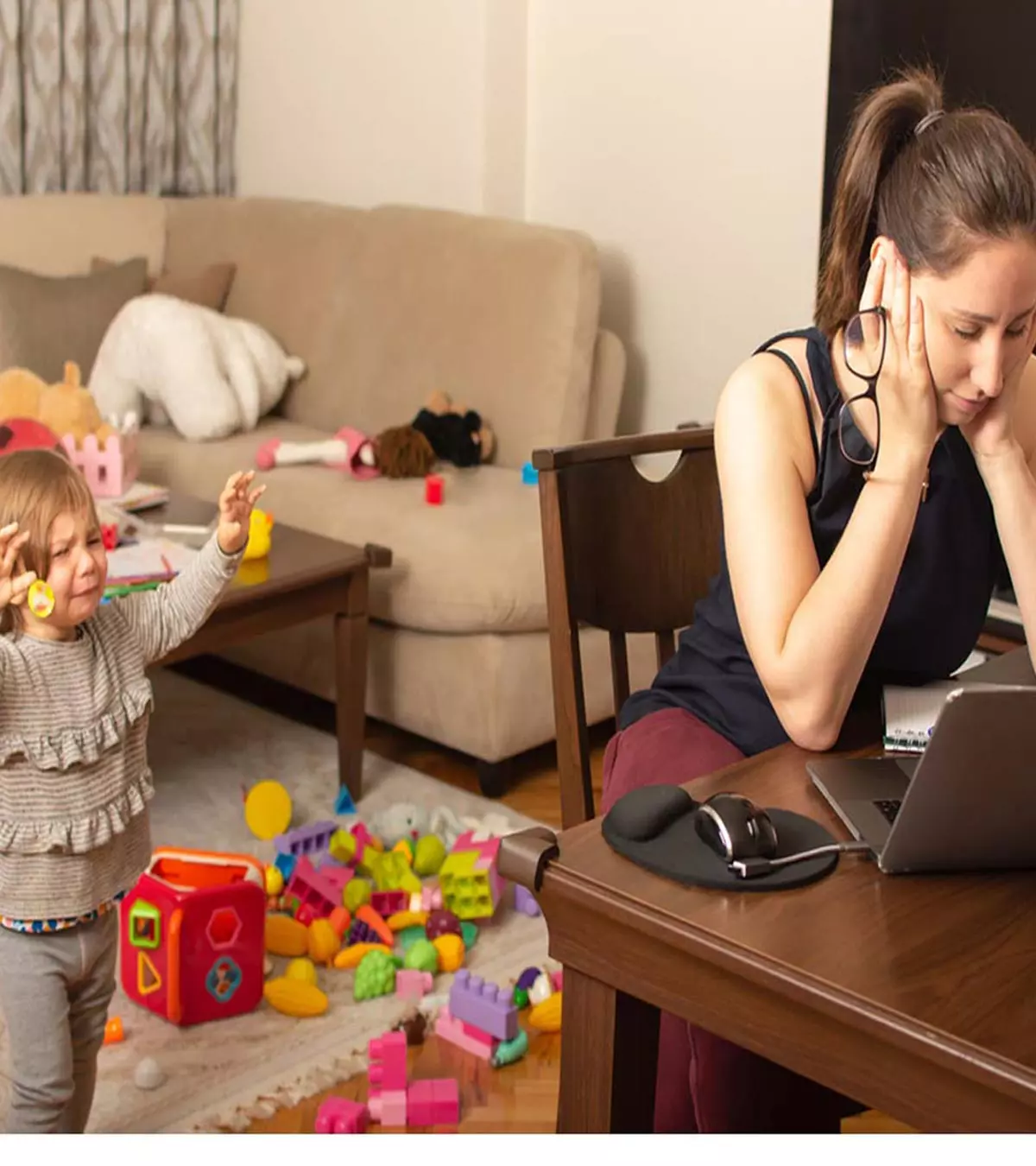

Image: Shutterstock
Embarking on the journey of parenting means navigating through various parenting styles, each with its own unique dynamics. Eggshell parenting is one such style that demands our attention. By understanding its intricacies, we can gain valuable insights into the emotional rollercoaster it entails. Read on to know the definition, implications, and strategies for navigating the complexities of eggshell parenting. Together, we’ll uncover the key to creating a more stable and nurturing environment for both parents and children. So, let’s dive into the world of eggshell parenting and discover the path to a healthier parent-child relationship.
What Is Eggshell Parenting?
Eggshell parenting refers to a parenting style characterized by emotional unpredictability and mood swings. It creates an environment where children feel the need to walk on eggshells to avoid triggering negative reactions or outbursts from their parents. This style can contribute to an unstable emotional environment within the family.
What Does It Mean To Be An eggshell parent?
Being an eggshell parent means experiencing extreme emotional highs and lows, which can result in inconsistent and intense responses to your child’s behavior. It often involves reacting with anger, frustration, or even hostility, causing your child to feel the need to be cautious and tiptoe around you.
Examples Of Eggshell Parenting
Image: Shutterstock
In eggshell parenting, your emotions may dictate your reactions towards your child. For example, you may respond to minor incidents with explosive anger or sudden outbursts, leaving your child feeling fearful and uncertain. In other instances, you may oscillate between extreme displays of affection and withdrawal, creating an atmosphere of confusion and insecurity.
Eggshell Parenting Vs. Occasional Parental Rage
In eggshell parenting, emotional unpredictability becomes a pervasive pattern. With eggshell parents, children live in a constant state of alertness and uncertainty due to their parent’s unpredictable mood swings. This consistent emotional instability can hamper the trust and emotional safety within the parent-child relationship.
On the other hand, occasional parental rage refers to isolated episodes of anger or outbursts that may occur in response to specific triggers or stressful situations. While occasional parental rage is concerning and can have negative impacts, it does not create the same sustained environment of emotional instability and walking on eggshells as eggshell parenting does.
The distinction between eggshell parenting and occasional parental rage lies in the frequency and intensity of these emotional reactions. Eggshell parenting is characterized by a consistent pattern of emotional volatility, where children are constantly on edge, anticipating the next outburst or unpredictable response. Occasional parental rage, on the other hand, may happen infrequently, and the parent’s emotional state is generally more stable outside of these episodes.
The Risks Of Eggshell Parenting
Image: Shutterstock
Eggshell parenting has negative impacts on children and the parent-child relationship. It contributes to chronic stress, anxiety, low self-esteem, and difficulties in forming healthy relationships for children. Parents also experience feelings of guilt, regret, and a sense of being out of control.
Chronic stress from an eggshell parent hampers a child’s development, impacting academics, concentration, and emotional well-being. It increases the risk of mental health issues like depression or anxiety. A stable and nurturing environment is vital for their overall growth.
How To Break The Cycle Of Eggshell Parenting
Recognizing and addressing eggshell parenting is crucial for creating a healthier and more stable family dynamic. Here are some strategies to break the cycle:
1. Seek Professional Help
Seek guidance from therapists or counselors specializing in family dynamics and emotional regulation. They will be able to provide valuable insights and support for your healing and personal growth. With their guidance, you can create a more stable and nurturing environment for yourself and your child.
2. Develop Emotional Awareness
Image: Shutterstock
Develop self-awareness by identifying and understanding your emotional triggers. This awareness empowers you to have greater control over your responses, mitigating excessive emotional reactivity. By recognizing and managing your own emotions, you create a more stable and nurturing environment for yourself and your child.
3. Practice Emotional Regulation Techniques
Use deep breathing, mindfulness, and relaxation exercises to manage your emotions in challenging situations. These techniques help you regulate your emotions and break free from the cycle of eggshell parenting. By incorporating these practices into your daily routine, you can cultivate a greater sense of inner calm and emotional resilience. This will enable you to respond to parenting challenges with clarity and compassion.
4. Build A Support Network
Seek support from trusted individuals or support groups as you break the cycle of eggshell parenting. They can provide understanding, guidance, and encouragement on your journey towards creating a healthier and more nurturing environment for you and your child.
Recognizing the impact of eggshell parenting is key to breaking the cycle and creating a stable environment for your child. Seek professional help, develop emotional awareness, practice regulation techniques, build a support network, and seek parenting education. With commitment and effort, you can provide your child with a balanced and loving upbringing that they deserve. Let us know in the comments your views on and experiences with eggshell parenting!
Break the Eggshell Parenting Cycle & Find Stability
Watch now to learn practical steps for overcoming eggshell parenting. Discover emotional regulation techniques, support network building, and professional guidance to create a stable, nurturing family environment.
Community Experiences
Join the conversation and become a part of our nurturing community! Share your stories, experiences, and insights to connect with fellow parents.
















